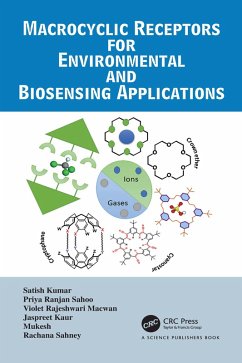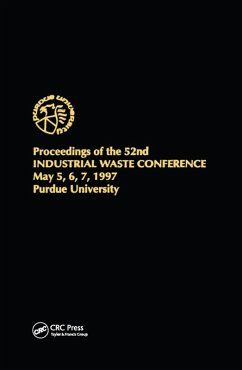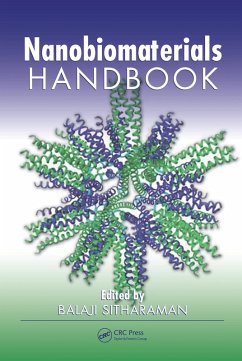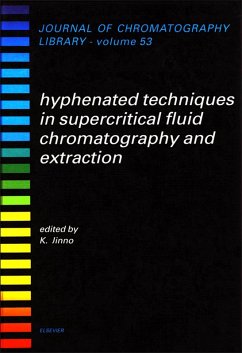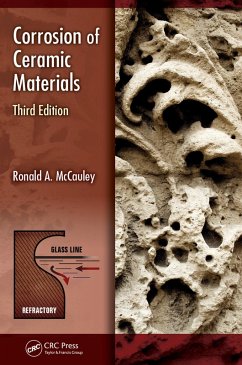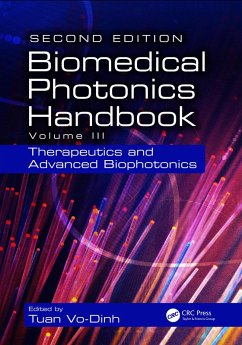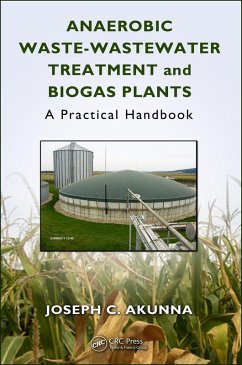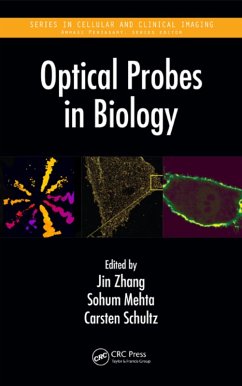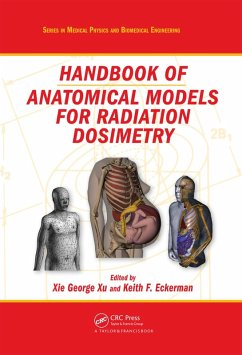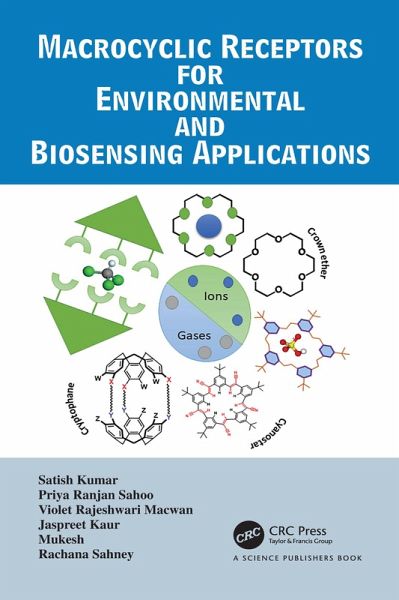
Macrocyclic Receptors for Environmental and Biosensing Applications (eBook, PDF)
Versandkostenfrei!
Sofort per Download lieferbar
67,95 €
inkl. MwSt.
Weitere Ausgaben:

PAYBACK Punkte
34 °P sammeln!
The book is designed to highlight the utility of supramolecular systems in diverse areas such as sensing of ionic and molecular analytes, aggregation, artificial molecular machines, biology, and medicine. The synthetic chemistry of a diverse set of supramolecules encompassing various supramolecular interactions involved in driving macrocyclic architectures is discussed. Attempts have been made to cover unique features of macrocycles viz. control over shape, size, and valency along with supramolecular interactions, which direct complex supramolecular systems. The book also provides a discussion...
The book is designed to highlight the utility of supramolecular systems in diverse areas such as sensing of ionic and molecular analytes, aggregation, artificial molecular machines, biology, and medicine. The synthetic chemistry of a diverse set of supramolecules encompassing various supramolecular interactions involved in driving macrocyclic architectures is discussed. Attempts have been made to cover unique features of macrocycles viz. control over shape, size, and valency along with supramolecular interactions, which direct complex supramolecular systems. The book also provides a discussion on the similarity between macrocyclic host-guest systems and biomolecules, which lay the foundation of building modern artificial molecular motors and switches like protein machines for application in diverse areas. The authors hope that the book will appeal to a wider audience of students and researchers in academics and/or industries.
Dieser Download kann aus rechtlichen Gründen nur mit Rechnungsadresse in A, B, BG, CY, CZ, D, DK, EW, E, FIN, F, GR, HR, H, IRL, I, LT, L, LR, M, NL, PL, P, R, S, SLO, SK ausgeliefert werden.




